目次~Table of Contents
Location and History
Two Castle Ruins in Izushi Area
Izushi Castle is located in modern day in the Izushi area of Toyooka City in the northern part of Hyogo Prefecture. The area is known as the old castle town where many people visit to enjoy walking, eating and shopping around the area including the Izushi Castle Ruins at the foot of the mountain. If you look up at the mountain on a fine day, you will find stone walls on the top, which are other castle ruins in this area, called Arikoyama Castle which had been built before Izushi Castle. These things make you understand the area has a very long history and rich culture.
The range of Toyooka City and the location of the castles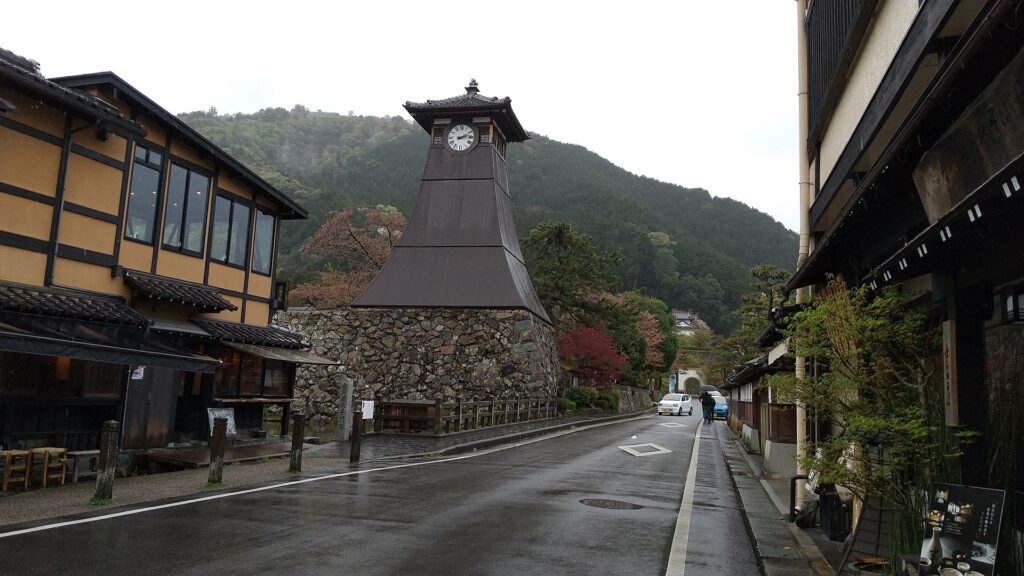
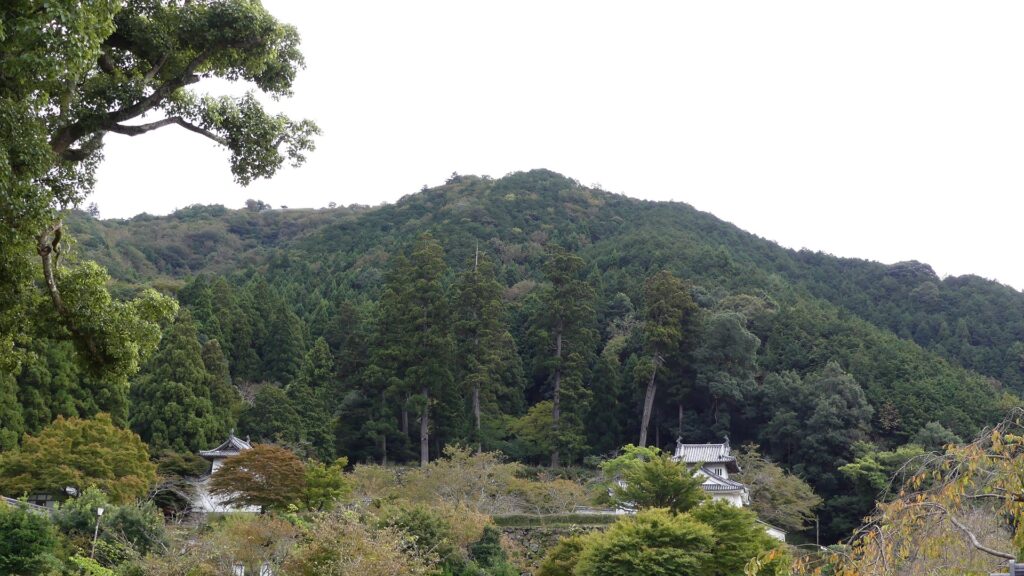
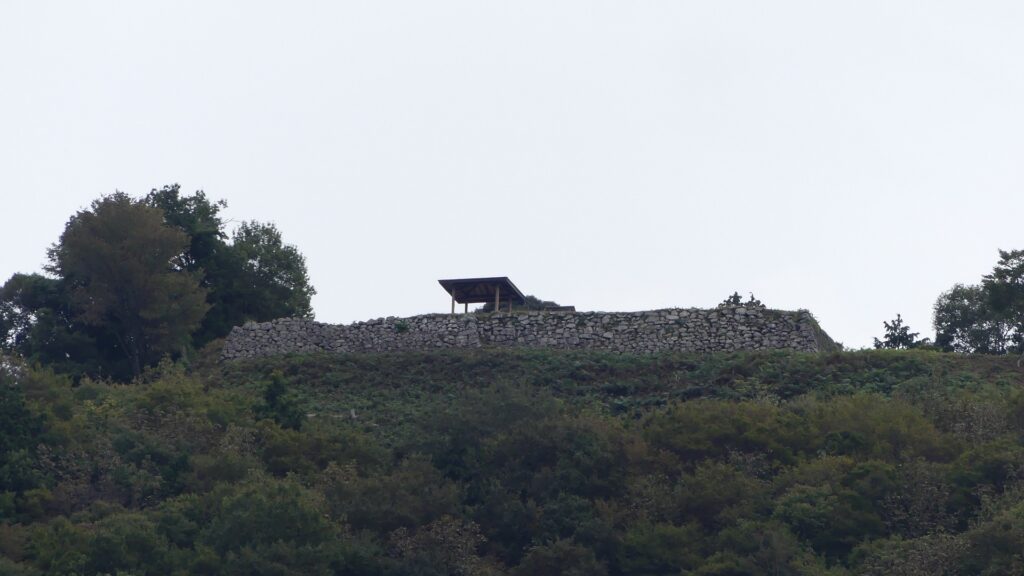
Yamana Clan, One of Greatest Lords during Middle Ages
Arikoyama Castle was first built by the Yamana Clan which is known as one of the greatest lords during the Middle Ages. The clan was a branch family of the Nitta Clan, which came from the Kanto Region in eastern Japan. When the Ashikaga Shogunate was established, Tokiuji Yamana, who was the lord of the clan at that time, greatly supported Takauji Ashikaga, the founder of the shogunate. That’s why Takauji sent Tokiuji to the Sanin area, the northern part of the Chugoku Region to govern, where their enemies were still active. Tokiuji and his descendants conquered their territories by force and finally became the governors of 11 out of 66 provinces in Japan, called Rokubun-no-ichi-dono (meaning the Lord of One Sixth of Japan).
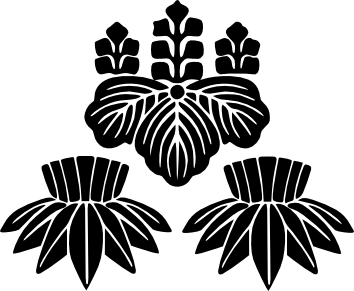
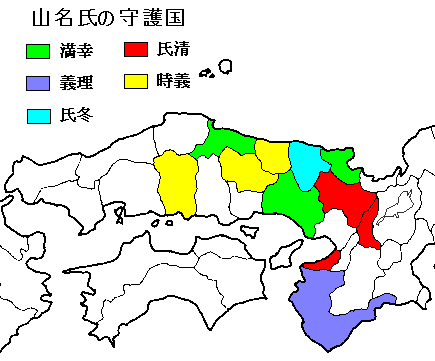
However, Yoshimitsu Ashikaga, the third Shogun, was afraid of the overwhelming power of the Yamana Clan and defeated it in 1391, known as the Meitoku Rebellion. The clan’s power once declined but Sozen Yamana came out in the 15th Century and revived it as they had been. He is known as the commander in chief of the Western Alliance against the Eastern Alliance led by Katsumoto Hosokawa during the Onin War between 1467 and 1477 which would start the Sengoku Period. The clan eventually had many provinces again and its home was in the current Izushi area of Tajima Province which is now known as northern Hyogo Prefecture. The lords of the clan were first based in Konosumi-yama Castle on a mountain, about 5km north of the later Arikoyama Castle. Sozen actually made a sally with about 26 thousand warriors from this castle to fight with the Eastern Alliance in Kyoto.
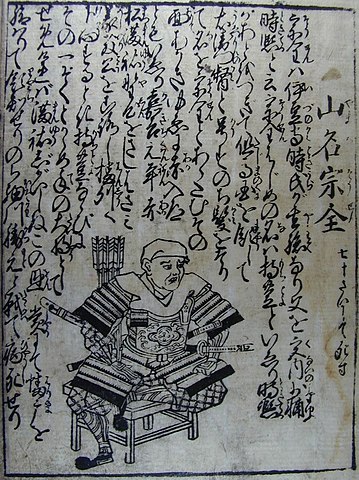
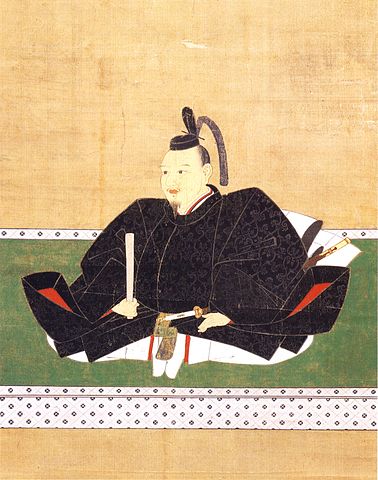
Unlike the Hosokawa Clan which had a certain position in the central government, the Yamana Clan had to maintain its provinces by force. It got difficult for the clan to do it during the Sengoku Period when overthrowing their lords were often seen as overthrowing the whole country. The clan eventually lost its provinces one by one, being defeated in many battles against other warlords like the Akamatsu and Amago Clans. As a result, the Yamana’s authority decreased and some of its senior vassals tried to become independent. Suketoyo Yamana, the lord of the clan tried to somehow manage to maintain his last Tajima Province by building Takeda Castle near the border to other provinces, and asking greater warlords like the Oda and Mori Clans for help.
The range of Tajima Province and the location of the castles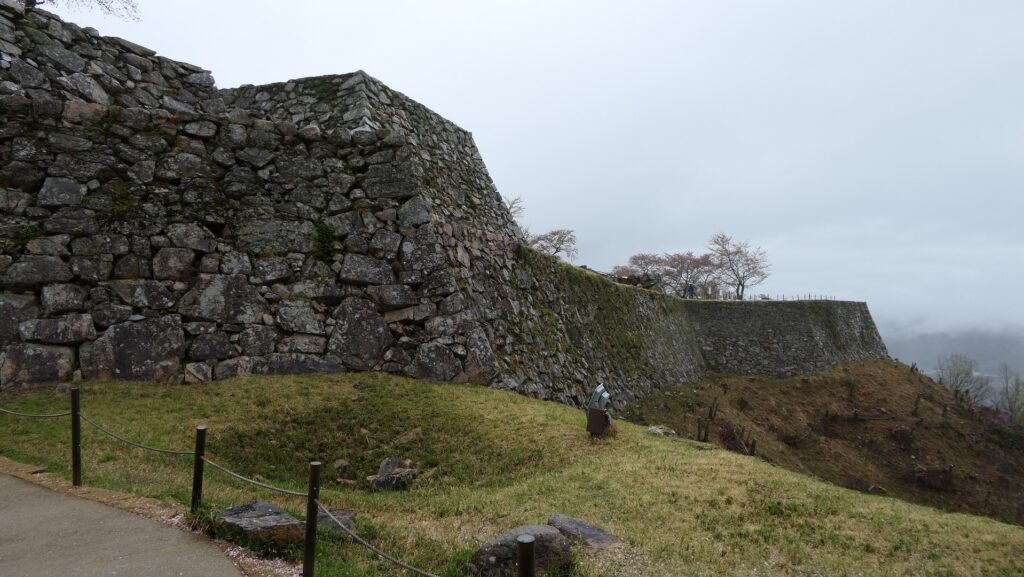
Suketoyo Yamana moves his home to Arikoyama Castle
However, when the Oda Clan attacked the Tajima Province in 1569, Suketomo’s home Konosumi-yama Castle was captured and he had to escape from the place. This might have been caused by the secret agreement between the Oda and Mori Clans that the Tajima Province would belong to the Oda. Suketoyo somehow returned to his territory in 1570 after he had met with Nobunaga Oda (the lord of the clan) while paying lots of money from mining in the province. Then, he moved to his home to Arikoyama Castle, located on a much higher and steeper mountain than Konosumi-yama Castle, and improved it so that the fall of his castle would never happen again. Suketomo usually lived in the residence at the foot of the mountain, which would be the origin of Izushi Castle and its castle town.
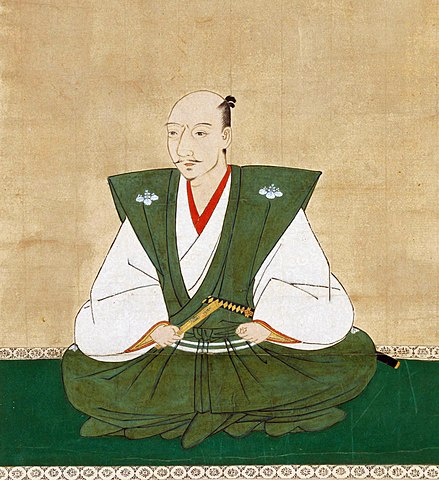
In the 1570’s, the Oda and Mori Clans began to oppose each other. Suketomo was debating on the face on which side he would support. The Oda Clan attacked the Tajima Province again in 1580 by sending Hidenaga Hashiba who was the little brother of Hideyoshi, the later ruler of Japan. It is said that one of the reasons for the invasion was that they wanted to own the mines in the province, such as the Ikuno Silver Mine. Hidenaga’s troops surrounded Arikoyama Castle and Suketomo finally had to surrender perhaps because they had no hope for reinforcements.

Hidenaga Hashiba improves Castle
After that, Hidenaga lived in and improved the castle as the home base of the Tajima Province. The castle had been made of soil so far but its main portion on the top was fortified by building stone walls. It is said that Takatora Todo, who was a senior vassal of Hidenaga and would later become a master of castle constructions, built them. Senjoshiki (meaning the 1,000 mat enclosure), next to the main portion, was developed to accommodate many soldiers and supplies even when other lords in the province gathered for help.
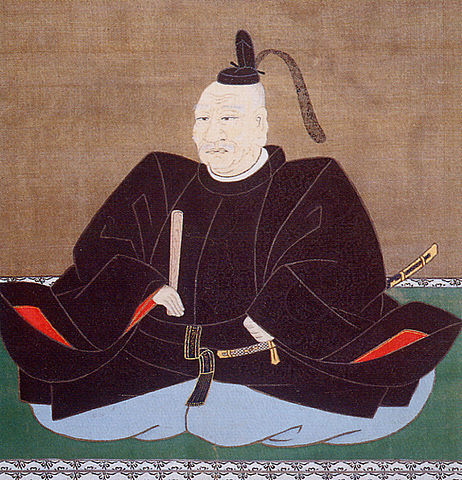
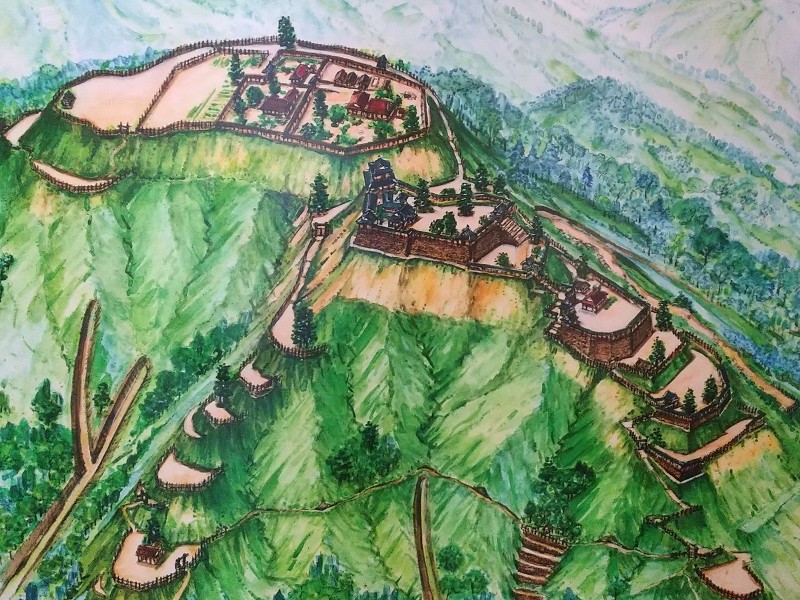
Yoshihide Koide builds Izushi Castle
The castle was followed by the Koide Clan, a relative of Hideyoshi Toyotomi after he became the ruler of Japan. The clan somehow survived when the ruler was changed from the Toyotomi Clan to the Tokugawa Shogunate. In 1604, Yoshihide Koide renovated the foot residence and renamed it Izushi Castle perhaps due to the convenience for the government. He also abandoned Arikoyama Castle on the mountain instead. The new castle and its castle town prospered during the Edo Period as the Izushi Domain, which was finally followed by the Sengoku Clan until the end of the period.
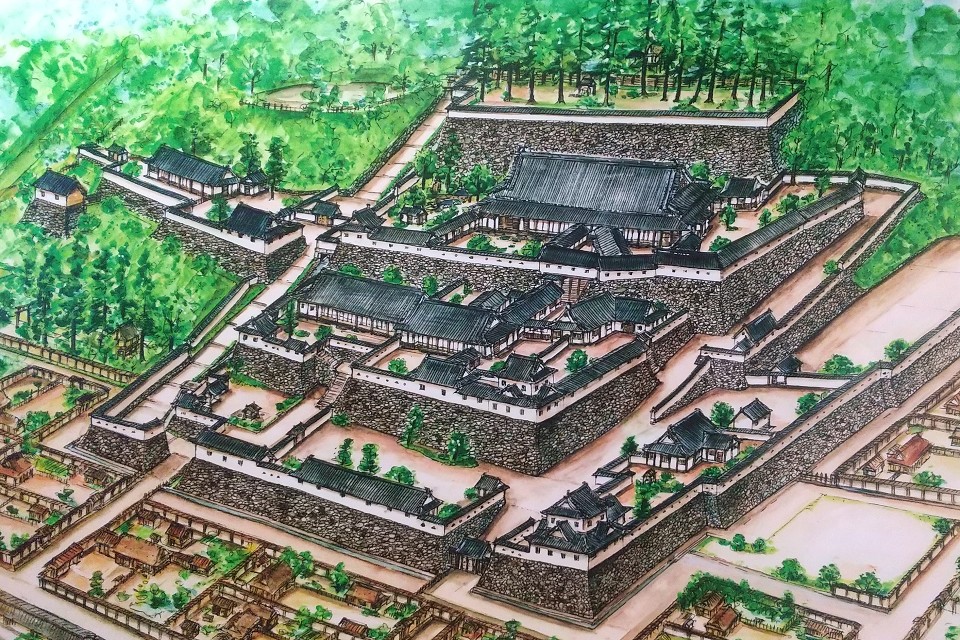
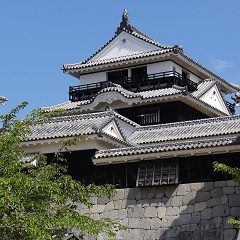
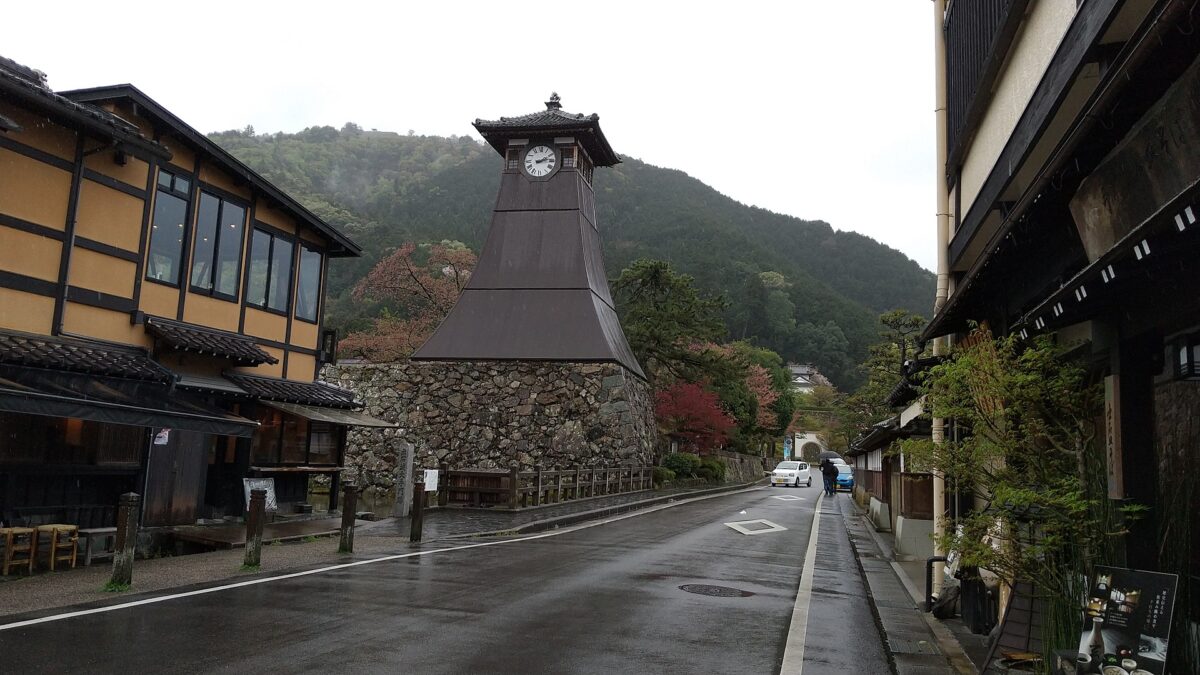
「162.Izushi Castle/Arikoyama Castle Part1」への2件のフィードバック